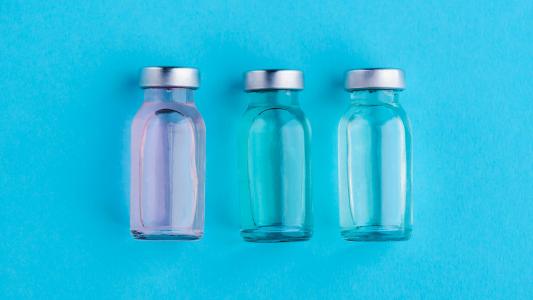When the pandemic began, healthcare workers had one objective: figure out how to keep patients alive. But as the population of coronavirus survivors grew, they started to realize that a patient’s battle with COVID-19 didn’t always end after a negative test result.
“In the early days, it looked like there was a group of patients who got sick and got well, and a group of patients who got sick and died,” Zijian Chen, an endocrinologist at Mount Sinai Hospital, told the Association of American Medical Colleges (AAMC) in August.
“Now there’s an ever-growing group that gets sick and stays sick. That may be tens of thousands of people,” Chen said. “The goal now is to figure out how best to get care to as many of them as possible.”
A growing number of hospitals have launched post-COVID-19 clinics, a new type of facility where specialists from a variety of fields treat — and study — coronavirus survivors.
Today’s Post-COVID-19 Clinics
Months into their recovery, some coronavirus survivors continue to suffer from physical ailments, such as chest pain or fatigue, while others experience mental health effects, such as depression, anxiety, and “brain fog.”
At post-COVID-19 clinics, workers can test patients for these problems and then connect them to cardiologists, psychiatrists, and every kind of specialist in between for treatment.
To reach coronavirus survivors, some post-COVID-19 clinics proactively follow up with patients every few weeks after they leave the hospital, or, if they weren’t hospitalized, after they receive a diagnosis.
In other cases, coronavirus survivors actively seek out the clinics. All too often, this is because they’re having trouble getting the medical help they need through traditional routes — many report having their symptoms dismissed by doctors.
“In an ideal world, with these post-COVID-19 clinics, you can identify the patients and get them into rehab,” James Jackson, director of long-term outcomes at the Vanderbilt University’s ICU Recovery Center, told CNN in September.
“Even if the primary thing these clinics did was to say to patients, ‘This is real, it is not all in your head,’ that impact would be important,” he added.
Helping Tomorrow’s Coronavirus Survivors
Post-COVID-19 clinics might not just benefit today’s coronavirus survivors — the facilities might also help healthcare workers treat the survivors of the future.
Right now, researchers have very little understanding of the connection between certain patients and certain lingering symptoms. People with mild cases can have severe post-COVID-19 issues and vice versa.
By following up with a lot of patients, researchers might be able to gather enough data to connect the dots between patients and lingering coronavirus symptoms.
Armed with that knowledge, they might then be able to figure out how to minimize the long-term health effects of COVID-19 — or maybe even eliminate them altogether.
We’d love to hear from you! If you have a comment about this article or if you have a tip for a future Freethink story, please email us at tips@freethink.com.
